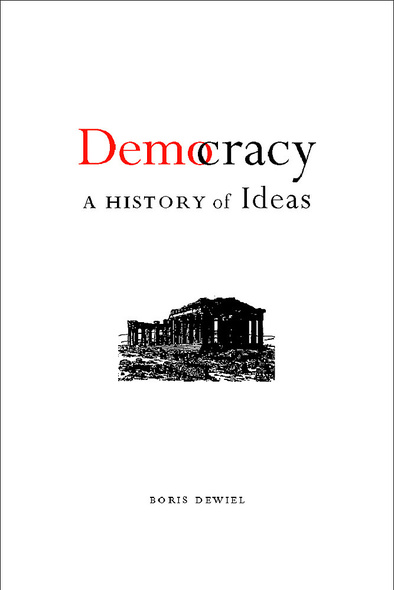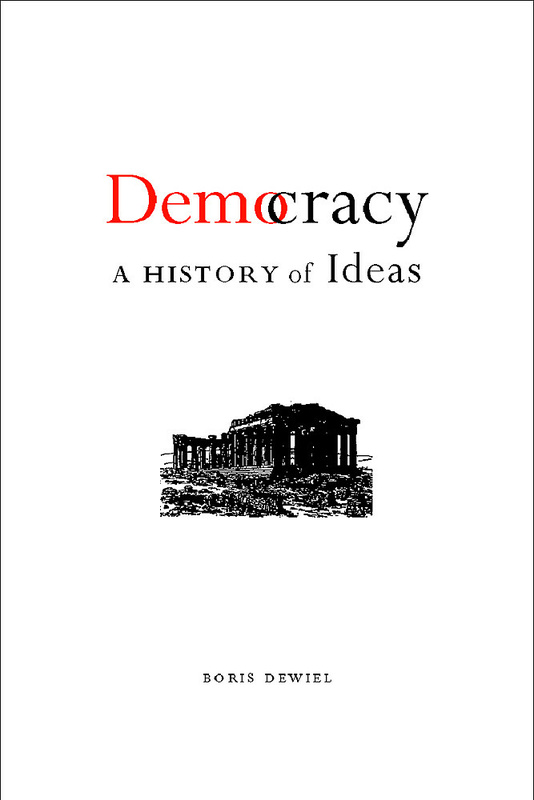
What is democracy? Is it the movement toward united self-government in which equality is our highest value? Or is it about preserving the freedom of individuals? In Democracy: A History of Ideas, Boris DeWiel argues that neither of these popular definitions is correct. Inspired by Isaiah Berlin, he describes democracy as a contest of values. Equality and liberty, like justice and fairness, are among our ultimate ideals, but no single value is supreme. Because they conflict with each other, democracy is an endless battle of true yet contrary ideals.
The enduring structure of democratic conflict, the book argues, is rooted in the historical emergence of modern values. The approach is based on the simple premise that every new idea begins from an old one. Therefore, our own political ideas may be traced in stages to earlier beliefs about the good. By exploring the history of ideas, the book uncovers the deeply embedded pattern of ideological conflicts in politics today.
The book suggests that wherever democracy arises, a pattern of conflict will emerge among socialist, liberal, and conservative ideas. Based on a sophisticated theory of politics, DeWiel’s analysis promotes a better understanding of the major ideologies across democratic nations. By specifying the precise values embedded along the left-right continuum, the book concludes with an improved model of ideological differences for use in empirical and theoretical studies.
In this original and thoughtful defense of democracy, DeWiel contends that value pluralism is inescapable and that democracy should be understood as an ‘unwinnable war of good against good.’ DeWiel has made a major contribution to the literature on democracy.
This book is an exercise in intellectual history, in democratic theory, and in the relationships between the two. It succeeds admirably in all these respects. DeWiel's conception of democracy is interesting and provocative. I found it most valuable as a thoughtful and well-documented history of democratic ideas.
Acknowledgments
1 Democracy and Value Pluralism
2 What Is the People? A Conceptual History of Civil Society
3 From Ancient Virtues to Modern Values: Positive Liberty and the Creative Will
4 The Teleology of Modern Time: Negative Liberty and Human Nature
5 Splitting the Individual: The Subatomic Values of Liberalism
6 Conservatism and the Temporal Order
7 Socialism and the Power of Social Unity
8 Democracy as a Pattern of Disagreement
References
Index





